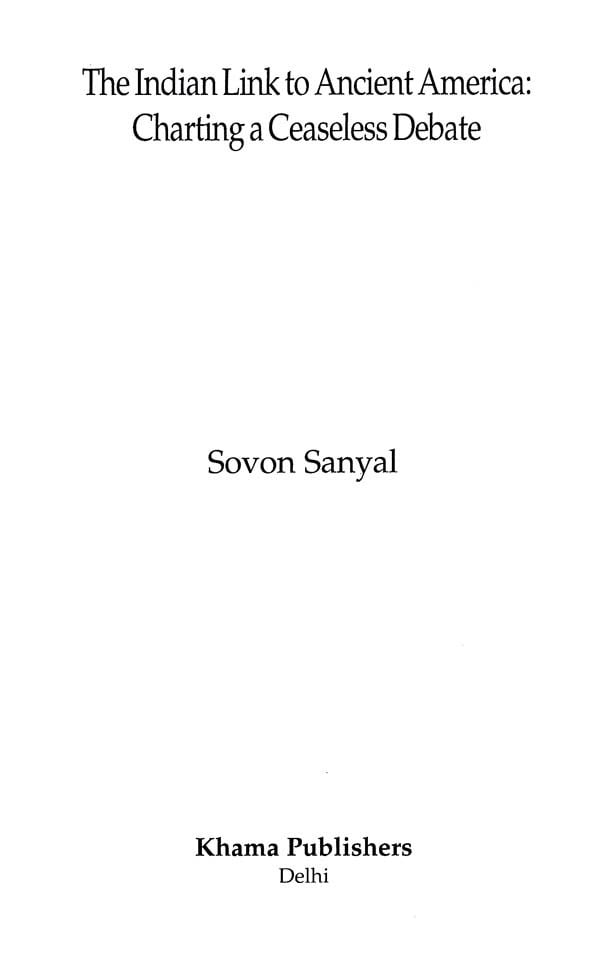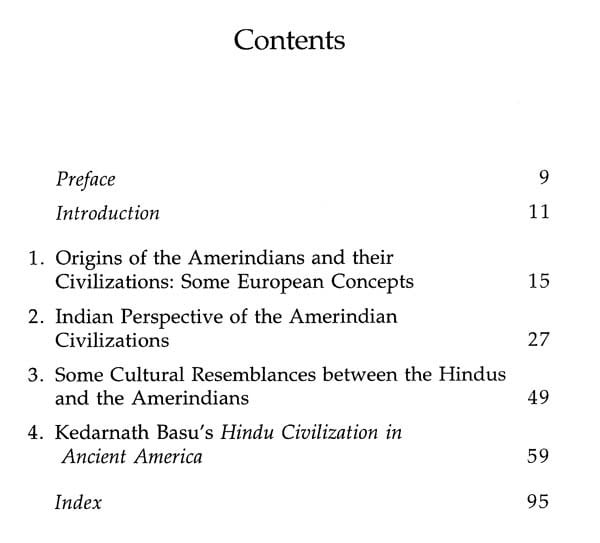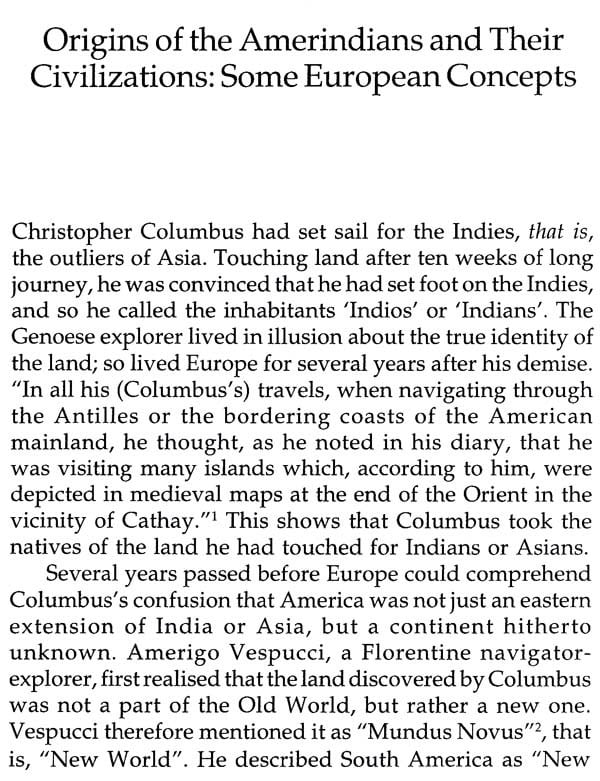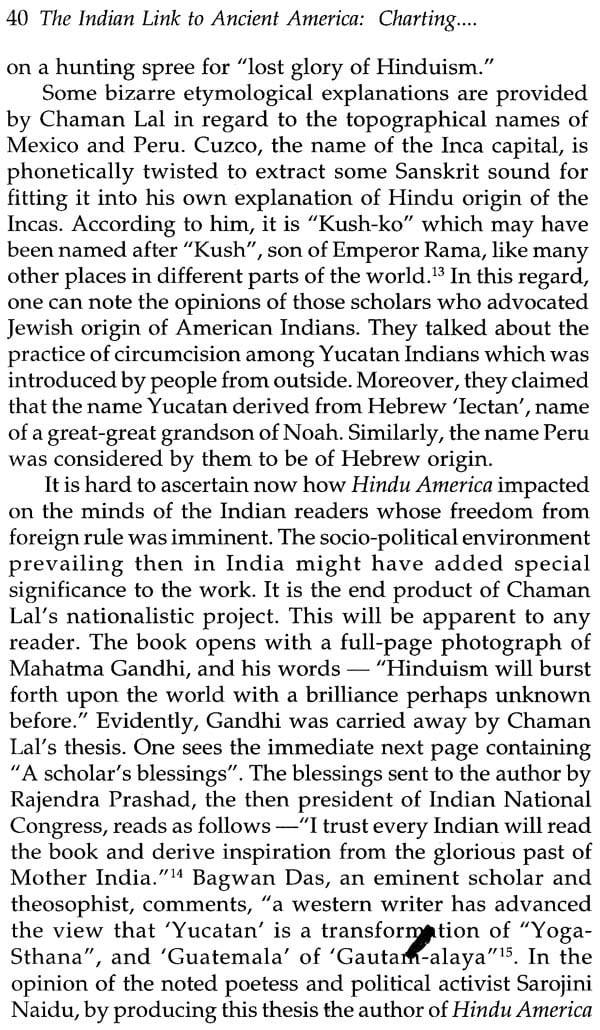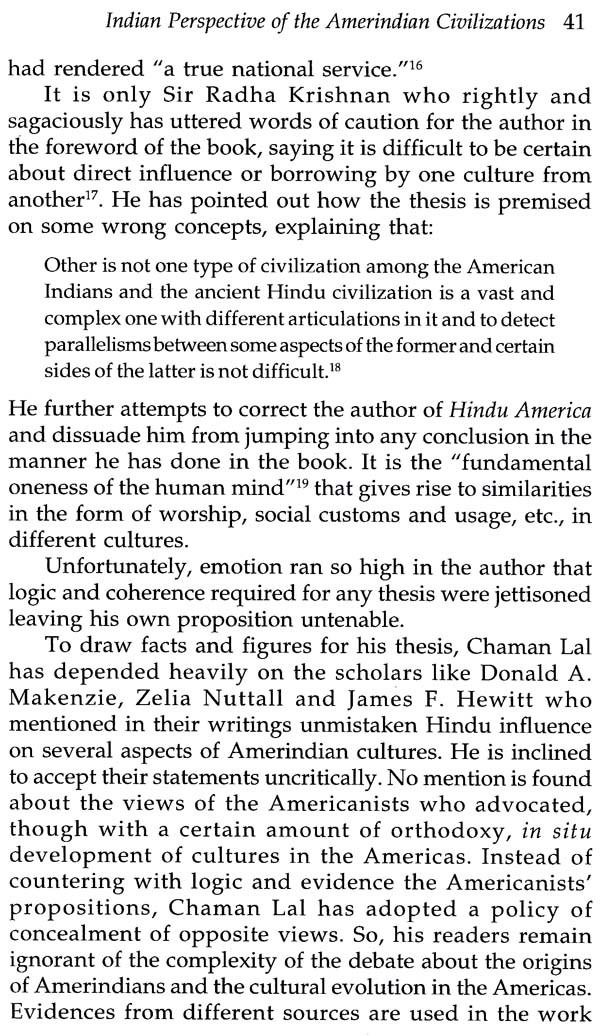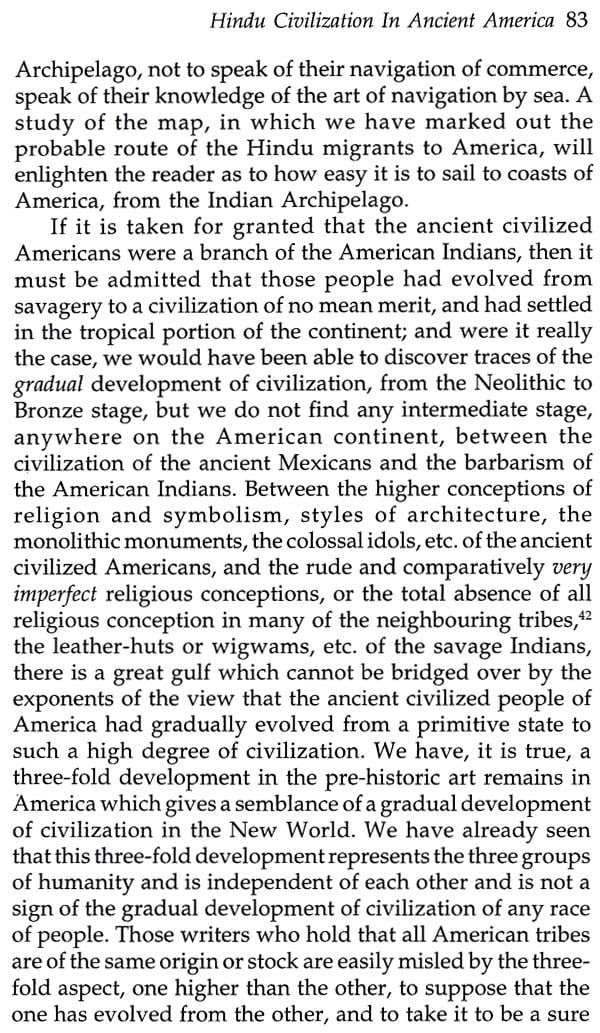
The Indian Link to Ancient America: Charting a Ceaseless Debate
Book Specification
| Item Code: | UAS364 |
| Author: | Sovon Sanyal |
| Publisher: | KHAMA PUBLISHERS, Delhi |
| Language: | English |
| Edition: | 2019 |
| ISBN: | 9788185495521 |
| Pages: | 100 |
| Cover: | HARDCOVER |
| Other Details | 8.50 X 6.00 inch |
| Weight | 240 gm |
Book Description
This little book grew out of my long-standing interest in the New World civilizations such as Olmec, Teotihuacan, Maya, Aztec and Inca, and curiosity about their links to ancient India, of which many people have written freely and randomly.
Simon Bolivar, El Libertador, believed, "This country (Peru) was guided by an instinct that can be called the wisdom of nature itself. There were no known models for its creations, and its doctrines had neither teachers nor examples, so that everything about it was original, and as pure as the inspiration that comes from on high." What Bolivar says about Peru is true for the entire western hemisphere. The American continent was isolated from the rest of the world by the oceans around. The European and Asian civilizations borrowed from each other to advance. Due to the natural isolation, Mexico and Peru could not receive cultural advances form outside the continent. In spite of this shortcoming, they made baffling technological advancements. However many a question about the origins of these civilizations remain unanswered. Many mysteries are yet to be solved.
We sometimes hear our friends saying with a lot of conviction that Hindus ruled the ancient America. It is also not very uncommon to hear that all temples and pyramids of Mexico were built by the Hindus who migrated there in ancient times, and those temples actually house Hindu deities like Shiva and Ganesha. A well-read gentleman once told me that the son of Rama conquered and ruled Peru, thus the brave Hindu. conquerors occupied the country and civilized the local people. That is why satee was practised by the Inca noble women and Deepavali was celebrated once upon a time with all the pomp in Peru. He said most assuredly that the Inca kings were descendents of Tamil Brahmins and used religiously their sacred threads till the last days of their lives. When the Tamils settled down in Peru, they named many places after Hindu mythological figures. But gradually those names got distorted to some unrecognisable sounds. Distortions were done later intentionally by the Europeans who were averse to recognising the Hindu origin of these civilizations. Disgusted as he was, the gentleman said, "Christians cannot after all appreciate non-Christian cultures."
**Contents and Sample Pages**
